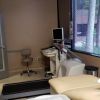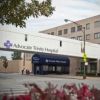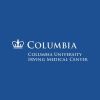How to Recognize the Early Symptoms of Heart Disease: A Complete Guide
- 1. Understanding Heart Disease and Its Risk Factors
- 2. Early Symptoms of Heart Disease: What to Look For
- 3. Recognizing Heart Disease Warning Signs in Daily Life
- 4. Personal Experience: My Story with Early Heart Disease Symptoms
- 5. When to Seek Medical Help for Heart Disease Symptoms
- 6. Prevention and Lifestyle Changes to Protect Your Heart
1. Understanding Heart Disease and Its Risk Factors
Heart disease is a general term that refers to various types of heart conditions, including coronary artery disease, heart attacks, and heart failure. It’s important to understand that heart disease doesn’t develop overnight—it typically develops over years, often without noticeable symptoms at first. Certain factors, such as high blood pressure, high cholesterol, smoking, and diabetes, increase the risk of developing heart disease. Understanding these risk factors helps you stay alert to any early warning signs that may indicate the presence of heart disease.
2. Early Symptoms of Heart Disease: What to Look For
The early symptoms of heart disease can often be subtle and easy to overlook. Some of these symptoms may seem unrelated to the heart but can indicate an underlying problem. Being aware of these early signs is crucial, as early detection can lead to better treatment outcomes and improve your overall prognosis.

2.1. Chest Pain or Discomfort
Chest pain or discomfort is one of the most common early symptoms of heart disease. It may feel like tightness, pressure, or a squeezing sensation in your chest. While it’s not always an indication of a heart attack, it’s a symptom that shouldn’t be ignored. If you experience chest pain along with shortness of breath or dizziness, it’s essential to seek immediate medical attention.
Atlanta Heart Specialists
atlanta heart specialists
4375 Johns Creek Pkwy #350, Suwanee, GA 30024, USA

2.2. Shortness of Breath
Feeling winded or having trouble catching your breath, especially after mild exertion, can be an early warning sign of heart disease. As heart disease progresses, your heart may struggle to pump enough blood to meet your body’s needs, leading to difficulty breathing. If you notice that shortness of breath becomes more frequent or occurs during activities that didn’t used to cause it, it’s important to consult with a doctor.
2.3. Fatigue and Weakness
Unexplained fatigue or weakness can be an early symptom of heart disease. You may feel unusually tired, even after a good night’s rest, or find that simple tasks, such as climbing stairs, leave you feeling exhausted. This symptom often occurs when the heart isn’t pumping effectively, causing a decrease in oxygen-rich blood reaching your muscles and organs.
3. Recognizing Heart Disease Warning Signs in Daily Life
In addition to chest pain, shortness of breath, and fatigue, there are other subtle signs that could indicate heart disease. These may appear gradually over time, making them easy to overlook or dismiss as stress or simple fatigue.
3.1. Swelling in the Legs, Ankles, or Feet
When the heart is unable to pump blood effectively, fluid can build up in the body, leading to swelling in the legs, ankles, or feet. If you notice that your shoes feel tighter or you experience swelling without an obvious cause, this could be an early warning sign of heart failure.
3.2. Lightheadedness or Dizziness
Feeling lightheaded, dizzy, or faint can be a sign that your heart isn’t pumping blood effectively. This may occur suddenly or after physical exertion. It’s especially concerning if you experience dizziness along with other symptoms such as chest discomfort or shortness of breath.
3.3. Nausea or Indigestion
Some individuals with heart disease experience nausea or indigestion, particularly women. The discomfort may mimic symptoms of indigestion but can be related to a lack of blood flow to the stomach. If you experience these symptoms along with any other signs of heart disease, it’s worth getting checked out by a healthcare provider.
4. Personal Experience: My Story with Early Heart Disease Symptoms
Several years ago, I began to notice some subtle changes in my body. I felt more fatigued than usual, experienced occasional shortness of breath, and had a dull pain in my chest after physical exertion. I chalked it up to stress, but when the symptoms became more frequent and severe, I decided to see a doctor. After some tests, I was diagnosed with early-stage heart disease. The experience taught me the importance of listening to my body and recognizing these warning signs early. If I hadn’t paid attention to the signs, the condition could have worsened over time. Early intervention allowed me to manage my heart disease effectively and continue living an active life.
5. When to Seek Medical Help for Heart Disease Symptoms
If you experience any of the symptoms mentioned above, it’s important not to wait. Seeking medical help early can significantly improve your chances of managing heart disease before it progresses to more serious stages. If you’re unsure whether your symptoms are related to heart disease, it’s always better to consult with a healthcare professional. They can conduct tests, such as an ECG or stress test, to diagnose the underlying issue and provide a treatment plan tailored to your needs.
6. Prevention and Lifestyle Changes to Protect Your Heart
While recognizing the early symptoms of heart disease is important, preventing heart disease in the first place is even better. There are several lifestyle changes that can help protect your heart health:
6.1. Maintain a Healthy Diet
Eating a diet rich in fruits, vegetables, whole grains, and lean proteins can help prevent heart disease. Reducing your intake of saturated fats, salt, and sugar can also lower your risk.
6.2. Stay Active
Regular physical activity, such as walking, cycling, or swimming, can help keep your heart healthy. Aim for at least 30 minutes of moderate exercise most days of the week.
6.3. Quit Smoking and Limit Alcohol Consumption
Smoking and excessive alcohol consumption can increase your risk of heart disease. If you smoke, quitting can drastically reduce your risk. Limiting alcohol intake can also help protect your heart.
By adopting these healthy habits and staying aware of the early symptoms of heart disease, you can reduce your risk and keep your heart in top shape. Remember, if you notice any concerning symptoms, don’t hesitate to reach out to a healthcare provider for a full evaluation.





















Deborah Heart and Lung Center
deborah heart and lung center
200 Trenton Rd, Browns Mills, NJ 08015, USA